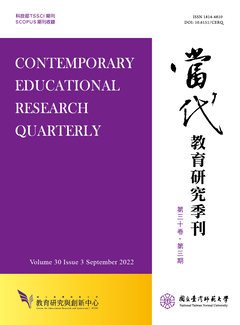

Purpose
In recent years, the output of the tourism sector of the food and beverage industry has increased considerably, and this sector of the industry is demonstrating development trends in innovativeness, creativity, and entrepreneurship. However, current food and beverageeducation does not include sufficient components of entrepreneurshipliteracy. The methods for equipping students with the ability to respond to future challenges in the tourism food and beverage industry have become a critical research topic. Accordingly, the purpose of this study is to examine the learning performance of students after receiving entrepreneurship literacy education through a digital learning platform. The results of this study can be used as a reference for developing education models for food and beverage entrepreneurship literacy.
Design/methodology/approach
In this research, self-developed food and beverage entrepreneurship literacy education materials were adopted and a teaching intervention was implemented through experimental teaching. By employing a digital learning platform as the learning medium, this study examined the effects of teaching food and beverage entrepreneurship literacy. In addition, a nonequivalent control group pretest–post-test approach was applied as part of the quasi-experimental design. A total of 93 students from the Food and Beverage Department of a university of science and technology were assigned to an experimental group or a control group. The students were asked to participate in a 12-week experimental teaching program. Data were collected through a pretest and post-test with self-developed questionnaires. Furthermore, one-way ANCOVA was used to test the difference between the post-test adjusted means.
Findings
The analytical results revealed that the mean score of the post-test for food and beverage entrepreneurship literacy was significantlyhigher than the mean pretest score. By contrast, the mean score difference in the control group was not significant. The post-test mean score of food and beverage entrepreneurship literacy for the experimental group was significantly higher than that of the control group. One-way ANCOVA was used to analyze the adjusted means, and the results indicated that the adjusted mean score of the experimental group was significantly higher than that of the control group. The research results support the significant effect of the teaching intervention and its demonstrable benefit to students’ food and beverage entrepreneurship literacy. The results also indicate that the implementation of entrepreneurship literacy education has an observable effect on university students.
Originality/value
At present, the food and beverage entrepreneurship literacy education of university students is lacking. Therefore, this study adopted learning and curriculum design theories and integrated future education models of entrepreneurship literacy and hospitality to develop teaching materials and a customized evaluation scale for food and beverage knowledge. Moreover, by using a digital learning platform, this study implemented rigorous experimental teaching to test the learning effects of food and beverage literacy. The analytical results indicate that students’ food and beverage entrepreneurship literacy can effectively stimulate their entrepreneurial potential andconsiderably benefits their career development and competitiveness inthe tourism and hospitality industry.

This work is licensed under a Creative Commons Attribution-NonCommercial 3.0 Taiwan License.
Center for Educational Research and Innovation, National Tawain Normal University
162, Ho-Ping East Rd, Sec. 1, Taipei, Taiwan | Tel:+886-2-7749-3670 | E-mail: cerecerq@gmail.com
CERI | NTNU | E-mail Alerts | Open Journal System
© 2014 CERI-NTNU
